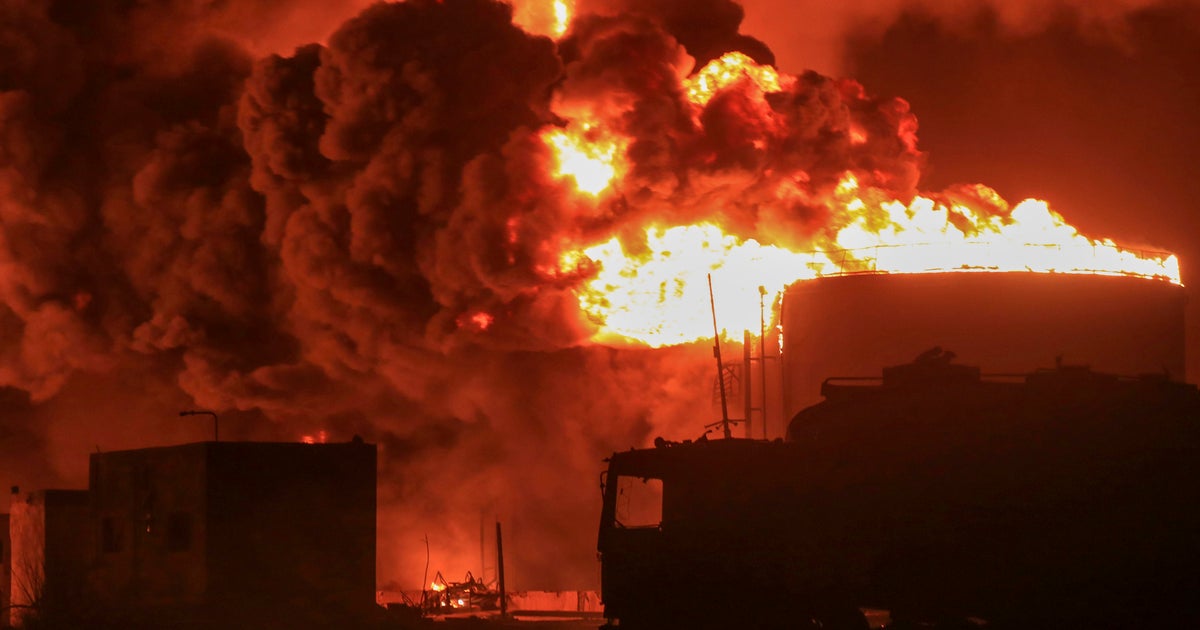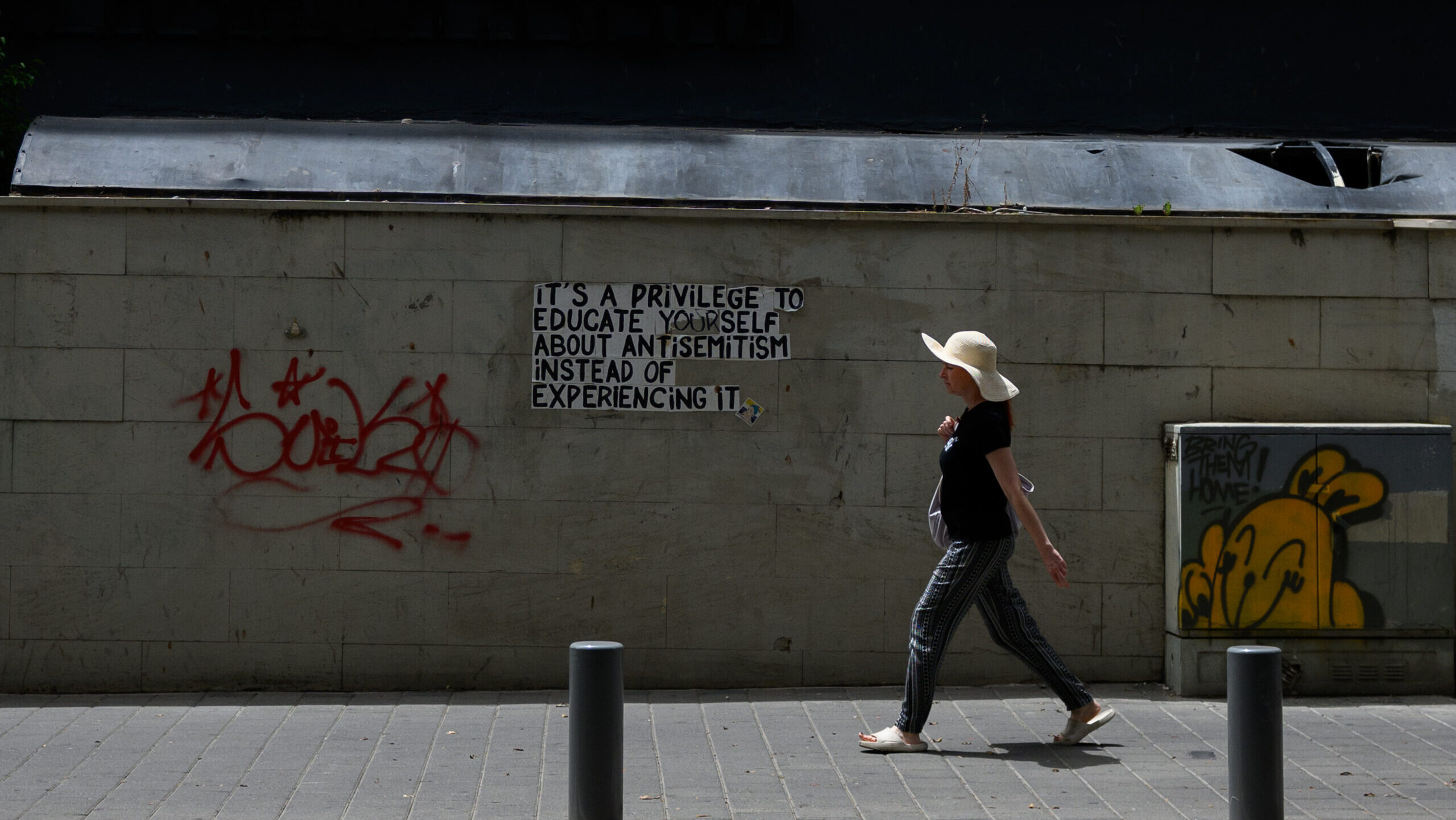Israel shoots down missile fired from Yemen after deadly Israeli attack on Houthi rebels

The Israeli military said it intercepted a rocket fired from Yemen early Sunday, hours after Israeli warplanes attacked several Houthi targets in the country on the Arabian Peninsula.
The Israeli airstrikes – in response to a deadly Houthi drone attack on Tel Aviv – marked the first time Israel has responded to repeated Houthi attacks in its history. nine-month war against Hamas. The outbreak of violence between the far-flung enemies threatens to open a new front as Israel battles a number of Iranian proxies throughout the region.
The Israeli army confirmed late Saturday that it had carried out air strikes on the western Yemeni port city of Hodeidah, a Houthi stronghold and a key access point for humanitarian aid and other supplies. The attacks, carried out by dozens of aircraft, including US F-15 and F-35 fighter jets, were a response to hundreds of Houthi attacks, it said.
Yemen’s Health Ministry said six people were killed and 83 others injured in the Israeli strikes, many of them with severe burns from a large fire. Three other people were missing, the ministry said in a statement that was also shared by the Houthi-run al-Masirah television station.
/ AP
Houthi spokesman Mohammed Abdulsalam posted on X that the “blatant Israeli aggression” targeted fuel storage facilities and the province’s power plant.
“The Israeli enemy has deliberately chosen these targets as part of its attack on the Yemeni economy,” said rebel leader Abdul-Malek al-Houthi.
The Israeli military said the surface-to-surface missile fired on Sunday was intercepted before it reached Israeli territory.
Israel, along with the US, Britain and other Western allies with forces in the region, has intercepted almost all Houthi missiles and drones. But early Friday, a Houthi drone broke through Israeli air defenses and crashed in Tel Aviv, Israel’s commercial and cultural capital, killing one person.
An Israeli Air Force official said on Sunday that the drone was inadvertently classified as a non-threat due to human error, as Israel was simultaneously tracking other drones that had taken off from Yemen and were approaching Israel from the east.
The Israeli military said Saturday’s attack on Hodeidah, about 1,700 kilometers from Israel, was one of the most complicated and remote operations carried out by the Israeli Air Force. The attack hit the port because it is the port from which Iranian weapons are delivered to Yemen.
Israel’s Defense Minister Yoav Gallant vowed to carry out similar attacks “wherever it might be necessary.”
The Houthis are among several Iran-backed groups that have attacked Israel in solidarity with Hamas since the Palestinian militant group’s October 7 attack sparked the ongoing Israeli offensive in the Gaza Strip.
In addition to fighting Hamas, the Israeli military is also involved in daily clashes with the militant Hezbollah group in Lebanon. These clashes have raised fears that the fighting could escalate into a full-blown war with Lebanon and beyond.
Yemen has been embroiled in a civil war since 2014. the Iran-backed Houthi movement conquered large parts of the north and forced the internationally recognized government to flee Sanaa. A coalition led by Saudi Arabia intervened to support government forces, and over time the conflict developed into a proxy war between Saudi Arabia and Iran.
The war claimed the lives of more than 150,000 people, including combatants and civilians, and resulted in one of the world’s worst humanitarian disasters.
The Houthis said Israel’s attacks would only make the Yemeni people and military more determined to support Gaza. “There will be effective attacks,” Mohamed Ali al-Houthi of Yemen’s Supreme Political Council wrote on X.
“All this will not stop the Yemeni people, the Yemeni leadership, the military and the rocket forces from attacking Israeli forces,” said Moatasem Abdel Salah, a resident of Sanaa.
Since January, US and British forces have been attacking targets in Yemen in response to Houthis’ attacks on merchant ships, which the rebels say are retaliation for Israel’s actions in the Gaza war. However, many of the ships attacked had no connection to Israel.
On Sunday, officials said the Houthis had repeatedly attacked a Liberian-flagged container ship transiting the Red Sea, the group’s latest assault on the key maritime trade route.
The ship’s captain reported attacks by three small Houthi vessels, an unmanned Houthi aircraft and rocket fire off the coast of Mocha in Yemen, causing “minor damage” to the vessel, the UK’s Maritime Trade Operations Centre said. The Joint Maritime Information Centre, a coalition monitored by the US Navy, identified the ship as Pumba and reported that “all crew on board were safe and sound”.
Early Sunday, the Houthis claimed responsibility for the attack on the Pumba.
Analysts and Western intelligence agencies have long accused Iran of supplying the Houthis with weapons. Tehran denies these allegations. The joint air strikes have so far had little deterrent effect.
The Houthis have long-range ballistic missiles, smaller cruise missiles and “suicide drones,” all of which weapons experts say can reach southern Israel. The Houthis are open about their arsenal and regularly parade new missiles through the streets of Sanaa.



